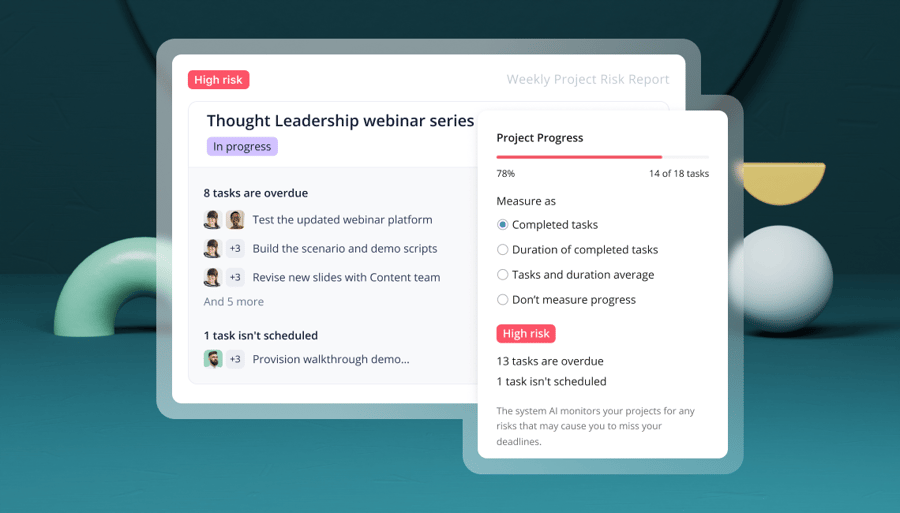Key takeaways:
- What is knowledge process outsourcing (KPO)? KPO involves outsourcing specialized information-related business activities to expert contractors for complex data handling and analysis.
- How does KPO differ from BPO? KPO focuses on expertise and customization for complex topics, while BPO emphasizes process efficiency and routine tasks.
- When should a business consider KPO? Businesses should consider KPO when lacking specialized knowledge, facing resource shortages, or needing cost-effective temporary support.
- What are the advantages of KPO? Key advantages include cost savings, efficiency improvements, and access to specialized talent without long-term commitments.
- What challenges do KPOs face? KPO challenges include data security risks, finding the right fit, and compliance issues, necessitating thorough research before partnership.
Wondering what knowledge process outsourcing is and whether your firm needs it? If you’re a vendor manager looking for support in data analytics, market research, global reporting, or performance management, this is the resource for you. In this guide, we’ve outlined exactly what KPO is, how it differs from BPO, and who is responsible for managing it all.
We’ve also included plenty of examples, benefits, challenges, and a tool you can use to maximize your investment. Keep reading to learn more about knowledge process outsourcing and how Wrike can help you manage it.
Introducing knowledge process outsourcing (KPO)
Knowledge process outsourcing (KPO) is the practice of tasking contractors with information-related business activity. These contractors are typically freelance individuals with highly specialized knowledge in a particular area. This makes them more qualified to understand and apply the data collected.
The biggest difference between KPO and business process outsourcing (BPO) is that BPO is all about creating and following a process, whereas KPO is focused on providing a specialized knowledge set along with their services. Essentially, you’re choosing between a firm with a highly efficient process without experts versus a firm with specialists who can create custom processes depending on the needs of the complex topics at hand.
The information KPOs process is essential for business. It’s centered around data that is a foundational element of the brand’s value chain. Not only is it necessary for operations, but it’s also key for creating valuable products and services.
This process is heavily data-driven and complex. It includes everything from identifying data points for collection to mining it all for actionable insights. The work involved is considered intense. And with the number of special skills required to tackle the various areas, it’s no surprise that businesses often hire more than one outsourced employee or a KPO firm to assist them.
These outsourcing facilities are located all over the world. This can be very cost-effective for businesses located in countries with stronger currencies. But it also presents challenges typical for remote work.
Who manages knowledge process outsourcing?
Vendor managers, business operations managers, and management consultants are all great candidates for managing knowledge process outsourcing. Their biggest challenge is aligning internal and external collaborators. This business process management is commonly built from the ground up. But it can also be based on past experience and workflows on other data-related projects.
The other biggest challenge KPO managers face is finding and keeping the best possible talent. According to India news outlet Firstpost, it’s important to find KPO firms that focus heavily on understanding the domain and objectives.
They go on to say that, “investing in strong domain specialists [who are] relentlessly living the culture of the domain in which they operate” is an absolute must for successful KPO organizations.
This means vendor managers will be the ones responsible for making sure that communication is strong and KPO firm alignment is stronger in order to succeed. Advanced tools such as business process management software are vital for every step of KPO management.
When do you need KPO?
There are three major scenarios businesses face that make them great contenders for knowledge process outsourcing. The first is a lack of specialization. Their teams may be missing someone with a deep knowledge of a particular data area. Or they lack data analysis experience. They may even have one or two qualified team members, but the task at hand requires additional support.
The second, as we’ve just mentioned, is a lack of employees. Whether that means having a team that lacks qualifications or one that is already overburdened, businesses may need additional help for this process. This reason is especially prevalent among bootstrapped startups.
The third is a lack of resources. That could mean teams are already short on time, the KPO process has a tight deadline, or businesses lack the funds to hire full-time employees. The hiring process for temporary employees and partners is less costly than the hiring process for salaried team members.
Plus, the cost of doing business with a KPO firm is low risk because the prices are typically lower than the in-house equivalent and they are only onboard temporarily for this one project.
What types of businesses use knowledge process outsourcing?
There are many different types of businesses that use KPO. But what they all have in common is the need to collect, store, and analyze a high volume of valuable data.
This is especially prevalent in industries such as finance, law, engineering, medicine, and technology. It’s also key for certain government agencies and researchers in nearly any discipline.
Even if a business doesn’t fit under these categories, they may have an internal department that can make use of KPO. For example, creative teams such as content marketing and graphic design often need data support since their work is directly tied to marketplace and audience information.
KPO even covers operational needs that every corporation uses. An international KPO firm named airisX offers services such as back-office support with customer solutions and sales. They also provide support for e-commerce and enterprise data management.
So as you can tell, there’s no shortage of industries that can benefit from partnering with a KPO firm. Even if a company doesn’t fall under the categories listed above, it may still need the support either out of necessity or as part of a larger resource management strategy.
Types of KPO services
Clutch recently listed the top KPO companies of 2021 based on customer reviews. Aidey, Unity Communications, and ARDEM Incorporated make up the top three. Here is a sampling of what they and other KPO firms have to offer:
- Customer Service, Experience, and Success
- Technology Support
- Back Office Functions
- Operations Streamlining
- Telecom Integration
- Data Entry
- Accounts Payable
- Utilities Management
- Call Centers
- Healthcare Services
In addition to the services they provide, top KPO companies also include essentials such as data security, industry experts, and a high level of quality management. Reviewers on Clutch point out that responsiveness and attention to detail were some of the other service-related offerings customers can expect from KPO firms.
Overall, KPO services tend to be well-rounded but also include experts who can provide great experiences for both you and your customers.
What are the advantages of KPO?
The biggest advantage of using knowledge process outsourcing in project procurement management is cost. KPO firms often provide competitive pricing. They’re also contract workers, so corporations save on some tax and benefits packages.
Vendor managers can choose when to hire new talent or pause contracts as needed. So with a little forecasting, businesses can reliably stay within budget by eliminating what might otherwise be fixed expenses.
Companies that choose to outsource also save on training and resources since most KPO firms take on the burden of providing both to their employees. For highly technical skills, this could mean big savings when it comes to recruitment costs. This is especially true if the role will be short-term or if it’s slated to begin sooner than later.
Beyond the financial opportunities, some other advantages of KPO include increasing process efficiency and sourcing unique talent. Most knowledge process outsourcing firms have the experience and tools needed to streamline operations for any organization. Whether that means taking on the burden of heavy task loads or simply providing streamlined workflows, KPOs offer smarter resources management.
And when it comes to sourcing unique talent, KPOs present fast and easy solutions for finding a subject matter expert as needed. Since KPOs tend to have a wide variety of team members, there is a good chance that they’ll be able to provide a specialist for any project right when you need them. They’ll already be trained, are familiar with your industry, and are able to onboard much quicker than traditional hiring processes because they’re already part of the KPO team you’ve partnered with.
What are the challenges of KPO?
According to Outsource Philippines, where KPO firms are set to become “the second largest source of the country’s foreign exchange,” the biggest challenges revolve around security.
Sharing data with a third party always poses a risk. Data can be stolen, sold, or even lost in the process of working with an outside vendor. That’s why it’s so important that vendor managers take extra precautions when making their final hiring decisions.
Another challenge to consider is fit. Just because a KPO offers a comprehensive list of services doesn’t mean they’re the best partner for a particular company. And with high staff turnover rates, vendor managers may find themselves spending more time getting acquainted with new account managers and specialists on a regular basis, sometimes even mid-project.
Compliance is another issue KPO firms regularly deal with. That means dealing with the risk of data confidentiality and security. A strong HR department can prevent obstacles like these. However, it’s nearly impossible to know how well a KPO brand deals with these issues before you partner with them.
With all this in mind, vendor managers should make sure they’ve thoroughly researched the reputations of their prospective KPOs and look for established brands to partner with.
Knowledge process outsourcing examples
Again, it’s important to keep in mind that the unique value proposition KPOs offer is specialty, which is why they are a great option for tasks such as:
- Medical hospital invoicing and billing for complex surgeries
- B2B tech software development firms that need assistance streamlining their production line to maximize profit without sacrificing quality
- VC firms that need assistance with investment research for interesting yet time-sensitive new opportunities
How to manage knowledge process outsourcing with Wrike
Wrike is a project management software that makes working with a KPO safer and more efficient. Project management timelines and tasks make it easy to assign work both internally and externally. And because project Gantt charts are highly visual, outsourced specialists can quickly reference their own personal due dates, as well as where their work fits into the bigger picture.
Wrike also provides a solution to data sharing with enterprise-level security. Not only can your team share and store data files right within the platform, but they can also control who has access to what. This ensures that information is still easy to locate, but it also keeps sensitive and unrelated information on a need-to-view basis.
The more you work with KPOs, the more you’ll want to use a robust and secure project management platform such as Wrike to maximize the impact of your investment.
Choosing the right KPO firm to partner with is challenging when your company’s most valuable data is on the line. Wrike creates peace of mind with the help of advanced features perfectly suited for third-party collaboration. Start your free trial today.









